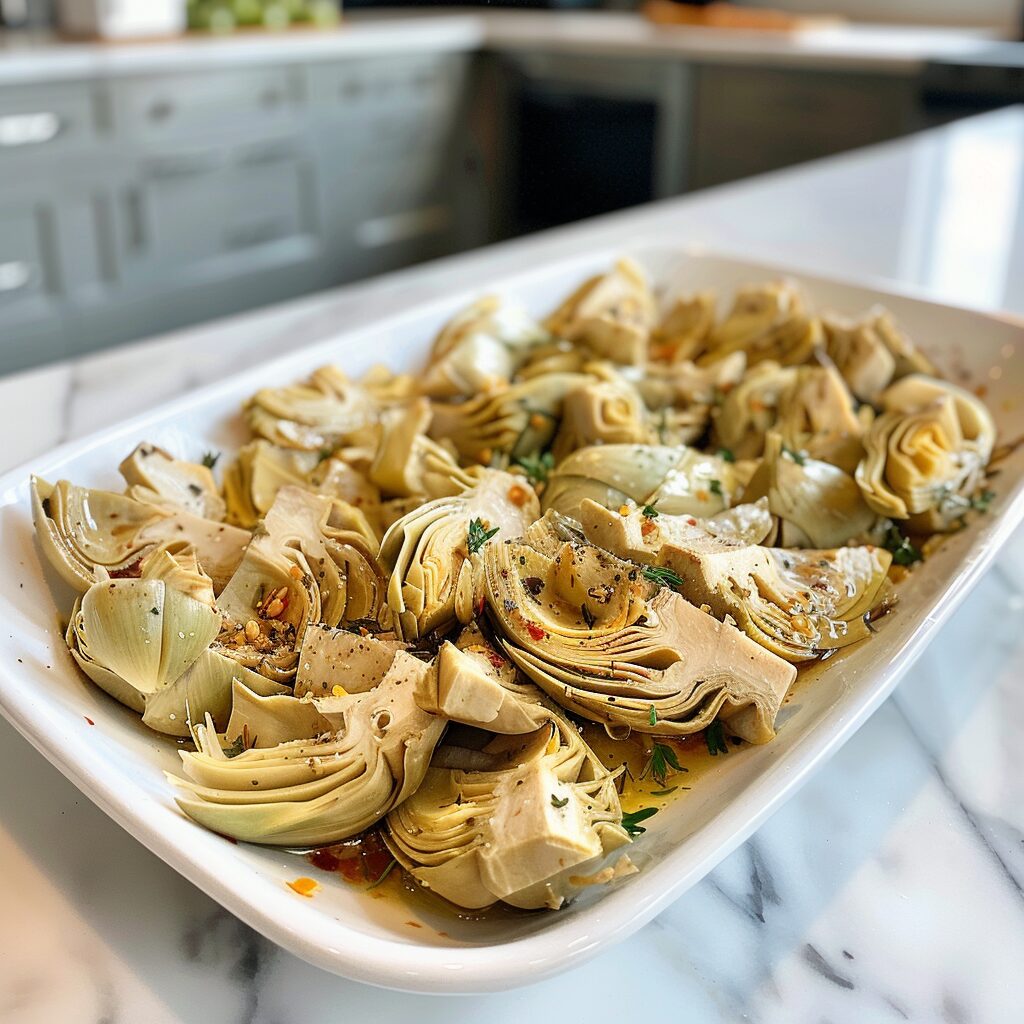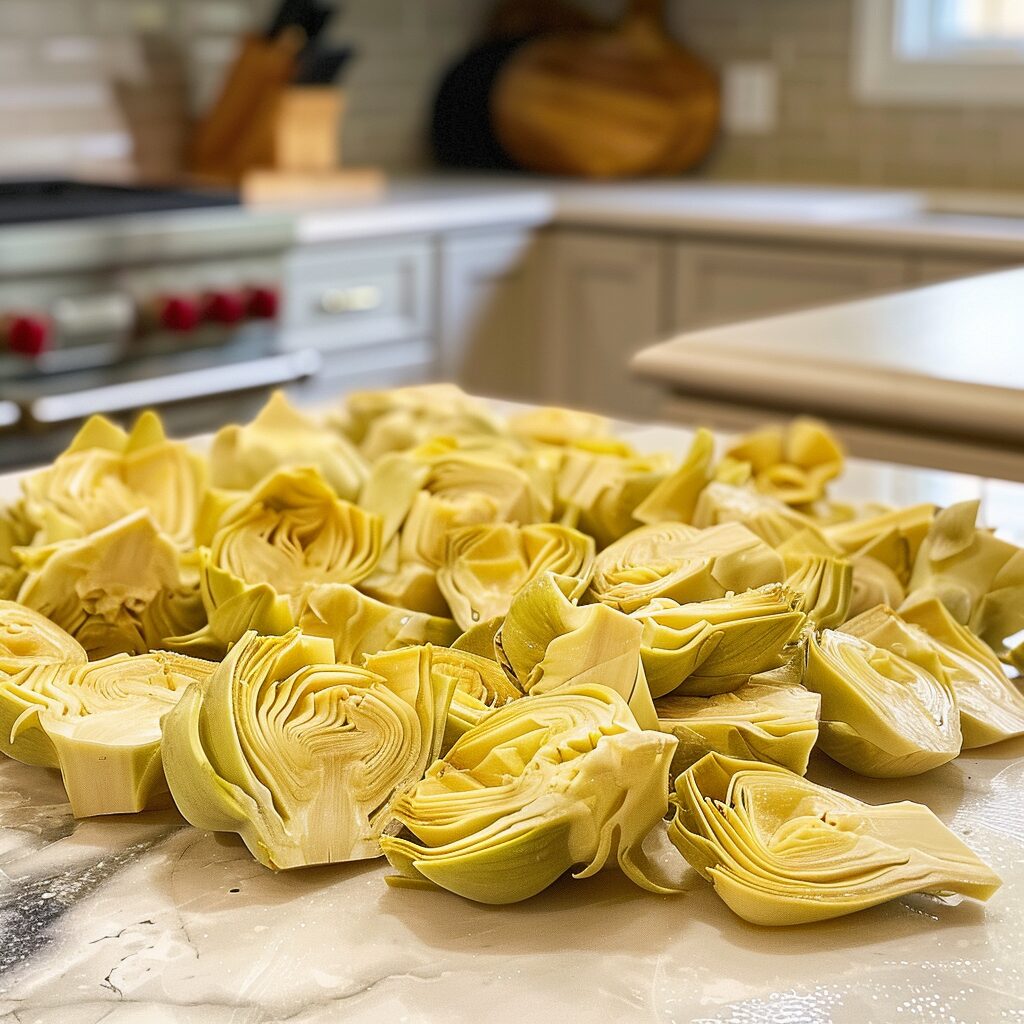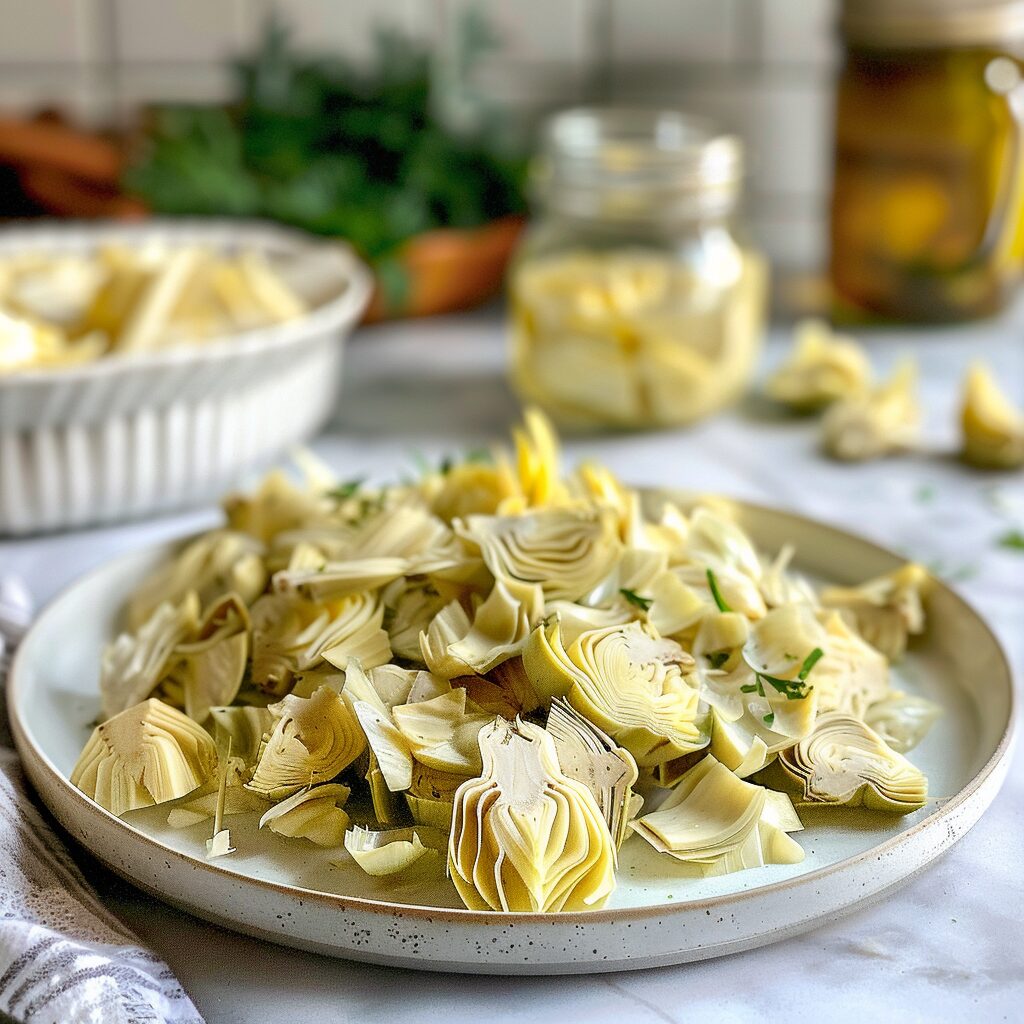Hey everyone, it’s Anne Carter here from Beyond the Bayou Blog. Today, I want to share a recipe that’s become a favorite in my kitchen: Artichoke Hearts.
I stumbled upon this dish when I was looking for new ways to use up some canned artichokes in my pantry. At first, I wasn’t sure how it would turn out, but let me tell you, it was a pleasant surprise.
This recipe is pretty simple and doesn’t take much time to make. It’s perfect for those evenings when you want something tasty but don’t feel like spending hours in the kitchen. I like to serve it as a side dish, but it can also work as a light meal on its own.
The best part? It’s versatile. You can adjust the seasonings to your liking or add extra ingredients if you feel like experimenting. Let’s get cooking!
Why You’ll Love This Recipe
- Perfect Moisture Balance: Steaming artichokes prevents them from becoming water-logged, unlike boiling, giving you tender and flavorful hearts.
- Easy and Versatile: Steaming is the simplest way to cook artichokes. You can boil, grill, braise, or stuff and bake them, but steaming offers consistent results with minimal effort.
- Flavorful Infusion: Adding a bay leaf, garlic, and a slice of lemon to the steaming water infuses the artichokes with delightful aromatic flavors, enhancing their natural taste.
- Tried and True Method: This steaming method has been a go-to for over 30 years, guaranteeing reliable and delicious results every time.
- Flexible Cooking Options: Whether you use a stovetop steamer or a pressure cooker, steaming artichokes is adaptable to your kitchen setup. While a pressure cooker speeds up the process, a stovetop steamer gives you more control to achieve the perfect texture.
These Substitutions Are Must-try!

- White Wine Vinegar: If you’re out of white wine vinegar, try fresh lemon juice, apple cider vinegar, or rice vinegar. Red wine vinegar works too, but keep in mind it will alter the color of the marinade.
- Oregano and Parsley: If you don’t have oregano and parsley, thyme and chives (fresh or dried) are great alternatives. Dried herbs are super convenient (and who doesn’t love convenience?). If you have fresh herbs, feel free to use them—just double the amount you would use for dried herbs. So, if a recipe calls for 1 teaspoon of dried herbs, use 2 teaspoons of fresh.
- Olive Oil: While olive oil is a staple, you can swap it with avocado oil or grapeseed oil. These oils have a similar mild flavor and work well in most dishes.
- Garlic: Fresh garlic is always a go-to, but if you’re in a pinch, garlic powder or even garlic-infused oil can be a good substitute. Just remember, garlic powder is more concentrated, so use about 1/4 teaspoon for every clove.
- Red Pepper Flakes: If you’re out of red pepper flakes, try using a pinch of cayenne pepper or a dash of hot sauce for that kick of heat.
- Sugar: If your recipe calls for sugar and you want a healthier option, honey or maple syrup can be great alternatives. Keep in mind these are liquid sweeteners, so they might slightly alter the texture of your dish.
Artichoke Hearts Recipe
Equipment
- Chef's Knife
- Tongs
- Bowl
- Colander
- Baking Dish
- Aluminum foil
Ingredients
- 2 cans 398ml/14oz artichoke hearts, quarters
- ½ cup extra virgin olive oil
- ½ teaspoon dried oregano or 1 teaspoon fresh
- ¼ cup white wine vinegar
- 1 clove garlic peeled
- ½ teaspoon salt
- ½ teaspoon dried chili flakes or to taste
- ¼ teaspoon fresh ground black pepper
- 1 teaspoon dried parsley or 2 teaspoon fresh
Instructions
- Drain and rinse the artichoke hearts, then pat them dry with a paper towel.
- Place the artichoke hearts in a bowl.
- Slice the garlic and add it to the bowl.
- Add the olive oil, white wine vinegar, oregano, parsley, chili flakes, salt, and black pepper to the bowl.
- Stir everything together until well combined.
- Transfer the mixture to a clean glass jar or airtight container and store in the fridge for up to one month.
Nutrition
What To Serve With Artichoke Hearts?






